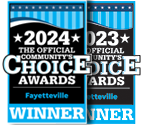Five Head Lice Tricks You’ve Got to Try
As our children start another year of school we make many preparations as parents. One we avoid psyching ourselves up for is the possibility of head lice. Yet the fact of the matter is, lice are most prevalent when school is in session. That’s because lice are spread through head-to-head contact, and school is a great place to get a whole bunch of heads together!
 Lice are parasitic insects that can be found on the head, in the eyebrows and on eyelashes. They feed on human blood. While the thought of lice alone makes most people cringe, for those unfortunate enough to receive a note home from the nurse, panic and fear is usually the initial response. Parents desperately run to the drug store in search of the best products to safely rid their child of nits while hoping to protect the rest of the family from getting them.
Lice are parasitic insects that can be found on the head, in the eyebrows and on eyelashes. They feed on human blood. While the thought of lice alone makes most people cringe, for those unfortunate enough to receive a note home from the nurse, panic and fear is usually the initial response. Parents desperately run to the drug store in search of the best products to safely rid their child of nits while hoping to protect the rest of the family from getting them.
According to the U.S. Food and Drug Administration, between 6 and 12 million children between the ages of 3 and 11, are infested with head lice each year. The casualties go up from there because parents often contract lice from their sweet children.
Understanding how to safely eradicate head lice from your home is mission one, but it is also important to understand how to prevent head lice from happening in the first place. Here are five head lice tricks to help get your kids school year off to a lice-free start.
- No Sharing – The biggest step to preventing head lice in your home starts with teaching your child to not share items that touch the head such as combs, brushes, hats, hair accessories, and even headsets and earbuds. Children should also not share pillows when having sleepovers!
- Get Some Space – Children should store their belongings in their own space. Closets and other storage spaces create the opportunity for lice to pass from one person’s belongings to another’s.
- Don’t Butt Heads – As previously stated, head to head contact is the biggest transmitter of head lice. Teach children to avoid playing games where heads are placed together. Selfies are a great example. While we want our kids to be friendly, if one child is known to have lice, head-to-head contact should be avoided for 2 weeks following initial treatment.
- Repel Lice – While they require further testing to prove efficacy, there are several hair products that may repel lice. These products often contain rosemary oil, tea tree oil, coconut oil, menthol or eucalyptus oil. Avoid lice killing products unless lice are actually present.
- Go Natural – Head lice are attracted to scented shampoos and conditioners and should be avoided, with the exception of the scents listed above.
Your child should be checked for head lice every once in a while, especially if you see your child itching his or her head frequently. Your pediatrician will be able to verify if they do, in fact, have lice and can recommend the safest treatment plan.
If you would like to make an appointment with one of our North Carolina pediatric providers, call 910-486-5437. To learn more about head lice or to read our pediatric health care blog, visit Rainbow Pediatrics online.







